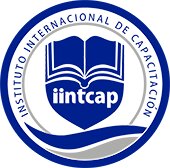Best Renewable & Alternative Energy Lawyers in Dominican Republic
Share your needs with us, get contacted by law firms.
Free. Takes 2 min.
Or refine your search by selecting a city:
List of the best lawyers in Dominican Republic
About Renewable & Alternative Energy Law in Dominican Republic
The Dominican Republic has emerged as a leader in renewable and alternative energy in the Caribbean, with a growing commitment to reduce reliance on traditional fossil fuels. The country’s government recognizes the importance of diversifying its energy matrix for environmental sustainability and economic development. Over the past decade, numerous laws and incentives have been established to encourage investment in renewable energy sources such as wind, solar, biomass, and hydroelectricity. These legal frameworks are designed to regulate, promote, and protect both domestic and foreign investments in the renewable energy sector.
Why You May Need a Lawyer
Navigating the renewable and alternative energy sector in the Dominican Republic can be complex due to evolving laws and regulatory requirements. Legal assistance is often crucial in situations such as:
- Setting up or acquiring renewable energy projects
- Securing permits, licenses, and environmental approvals
- Complying with tax incentives and regulations
- Negotiating power purchase agreements with distributors or the government
- Resolving disputes with authorities, contractors, or local communities
- Facilitating foreign investment and ensuring regulatory compliance
- Understanding the application of special tariffs or incentives
A lawyer with expertise in renewable and alternative energy law can help navigate these processes, protect your interests, and ensure compliance with all legal requirements.
Local Laws Overview
The legal landscape for renewable and alternative energy in the Dominican Republic is mainly governed by Law No. 57-07 on Incentives for the Development of Renewable Sources of Energy and their Special Regimes. Key aspects include:
- Tax Exemptions: Qualifying projects may enjoy exemptions on import duties for equipment, value-added tax, and some income taxes.
- Incentive Programs: There are incentives for both investors and consumers, ranging from tax credits to subsidized financing options.
- Licensing and Permits: Developers must secure permits from the National Energy Commission (CNE) and other relevant agencies.
- Power Purchase Agreements: Standardized agreements are available but often need negotiation with local authorities or the government-owned distribution companies.
- Environmental Impact Assessments: Mandatory for most medium and large projects, as enforced by the Ministry of Environment.
- Green Tariffs: Special tariffs and pricing structures encourage the incorporation of clean energy into the national grid.
- Local Content Requirements: Some projects may need to use local labor or materials, depending on their scale and nature.
Frequently Asked Questions
What types of renewable energy are promoted in the Dominican Republic?
Law No. 57-07 encourages development of solar, wind, hydroelectric, and biomass energy projects. The government actively supports diversification beyond fossil fuels.
Are there tax incentives for renewable energy investments?
Yes, tax incentives include exemptions from import duties, value-added tax, and in some cases income tax for qualifying projects. These are subject to specific requirements and approvals.
Do I need government approval before starting a renewable energy project?
Yes, most projects require permits and licenses from agencies like the National Energy Commission and the Ministry of Environment, especially if they impact public resources or the environment.
Is foreign investment allowed in the renewable energy sector?
Yes, foreign investors are welcome and can benefit from the same incentives as domestic investors, provided they comply with local regulations.
What are the main challenges in developing a renewable energy project?
Common challenges include navigating bureaucratic processes, securing permits, understanding local market dynamics, and ensuring compliance with environmental and labor standards.
How are power purchase agreements handled?
Power purchase agreements are negotiated with government-owned distributors or individual clients, and are subject to approval from regulatory agencies to ensure fair pricing and compliance.
What is the role of the National Energy Commission?
The National Energy Commission (Comisión Nacional de Energía - CNE) regulates the sector, issues licenses, and ensures compliance with energy laws and policies.
Are there any local content or employment requirements?
Certain projects may be required to use a percentage of local labor or locally-sourced materials to support national development goals.
How are environmental impacts of projects managed?
Projects must usually complete environmental impact assessments as part of the permitting process, overseen by the Ministry of Environment, to mitigate negative effects.
Can consumers benefit directly from renewable energy laws?
Yes, consumers can access incentives such as tax credits for installing solar panels or other renewable energy systems in their homes or businesses.
Additional Resources
If you are seeking more information or assistance, consider reaching out to the following entities:
- National Energy Commission (Comisión Nacional de Energía - CNE): The principal regulatory body for energy matters.
- Ministry of Environment and Natural Resources: Responsible for environmental assessments and permits.
- Superintendency of Electricity (Superintendencia de Electricidad): Oversees power market regulations and utility rates.
- Dominican Association of Renewable Energy (ASODENER): Offers support, advocacy, and up-to-date information for industry stakeholders.
- Local chambers of commerce and industry associations: Provide networking and advisory services.
Next Steps
If you are considering a renewable or alternative energy project in the Dominican Republic or need legal advice about compliance and incentives, follow these steps:
- Determine the scope of your project or legal concern.
- Gather all relevant documentation to support your case or application.
- Contact a lawyer with experience in energy law and Dominican regulations. A specialized lawyer can guide you through permitting, contracting, tax incentives, and compliance issues.
- Consult with regulatory bodies such as the National Energy Commission and the Ministry of Environment for specific requirements.
- Stay informed about updates to legislation and policy changes that could affect your interests.
Taking these steps will help protect your investment, ensure compliance with the law, and facilitate the successful development or operation of a renewable energy project in the Dominican Republic.
Lawzana helps you find the best lawyers and law firms in Dominican Republic through a curated and pre-screened list of qualified legal professionals. Our platform offers rankings and detailed profiles of attorneys and law firms, allowing you to compare based on practice areas, including Renewable & Alternative Energy, experience, and client feedback.
Each profile includes a description of the firm's areas of practice, client reviews, team members and partners, year of establishment, spoken languages, office locations, contact information, social media presence, and any published articles or resources. Most firms on our platform speak English and are experienced in both local and international legal matters.
Get a quote from top-rated law firms in Dominican Republic — quickly, securely, and without unnecessary hassle.
Disclaimer:
The information provided on this page is for general informational purposes only and does not constitute legal advice. While we strive to ensure the accuracy and relevance of the content, legal information may change over time, and interpretations of the law can vary. You should always consult with a qualified legal professional for advice specific to your situation.
We disclaim all liability for actions taken or not taken based on the content of this page. If you believe any information is incorrect or outdated, please contact us, and we will review and update it where appropriate.
Browse renewable & alternative energy law firms by city in Dominican Republic
Refine your search by selecting a city.














